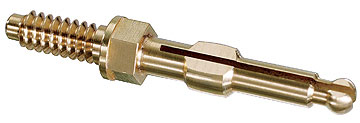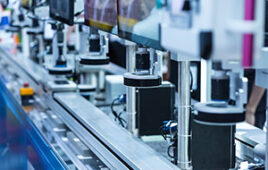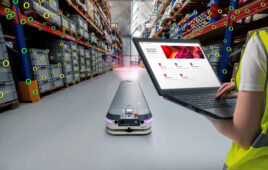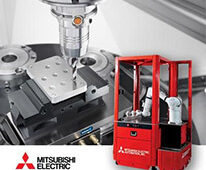Medical implants, high tech avionics, optics, consumer electronics, and green technology have internal parts with demanding tolerances, surface finishes, and that often use exotic materials such as titanium and Inconel. If the tool choice is machining, all must be machined to an extreme level of precision in order to mate properly. These parts must be free of burrs, slivers, or other surface imperfections.

Swiss Automation averages over $2 million/yr in new CNC machine purchases.
Swiss-style precision manufacturing uses computerized numerical controls (CNC) to machine high precision parts on Swiss screw machines. CNC Swiss screw machines from Swiss Automation have a sliding headstock, guide bushings, and cross tools to produce tiny parts with exact tolerances and surface finishes. They can handle cross drill, tap, mill, polygon, and “c” axis functions, plus perform additional machining on the subspindle to complete a complex part in one operation — “multi-tasking” at a productive extreme. Parts can be up to 1-1/4 in. in diameter, with tolerances as low as 0.0001 in.

Swiss style precision manufacturing uses computerized numerical controls to machine high precision parts on Swiss screw machines.
Such multitasking suited the needs of Endoplus, a Buffalo Grove, IL-based medical device manufacturer specializing in laparoscopic instruments. While Endoplus has internal manufacturing capability, for higher production capacity it chose to outsource the production of several laparoscopic instrument components to Swiss-style precision manufacturing. “By doing so,” noted Tom Feldsien, director of Product Development, Endoplus, “we reduced part cost by 48%, part variation by 76%, increased daily output of finished goods by 21%; and eliminated all scrap-related cost. We’ve measured just 1 part in 10 billion to be out-of-spec.”
Since then, outsourcing has grown to over a dozen laparoscopic components that are used in minimally invasive abdominal surgery.
Compressing design and delivery times was critical to Apollo Endosurgery, an Austin, TX-based leader in device and procedure development for a number of minimally invasive surgeries. However, in-house machining capacity and the lead times of traditional machine shops was insufficient.

Today, the legacy of Swiss style manufacturing lives on in the production and manufacture of small, precision parts.
“We needed precision part delivery within two weeks, but traditional machine shops were quoting 6 to 8 weeks,” said James Klein, design engineer working on an endoscopic suturing system.
Apollo Endosurgery turned to Swiss Automation, which was able to offer delivery of their needed precision components within two weeks. The engineers collaborated with Apollo Endosurgery on every needed design change to speed development.
“Their precision work, fast lead times, and willingness to accommodate us have helped to compress our design, prototype, test cycle so we can quickly identify the best designs, then ramp up production for the marketplace,” concluded Klein.
Swiss Automation
www.swissautomation.com
::Design World::
Filed Under: Factory automation, AUTOMATION, Machine tools + subtractive manufacturing, Medical-device manufacture, MECHANICAL POWER TRANSMISSION





Tell Us What You Think!